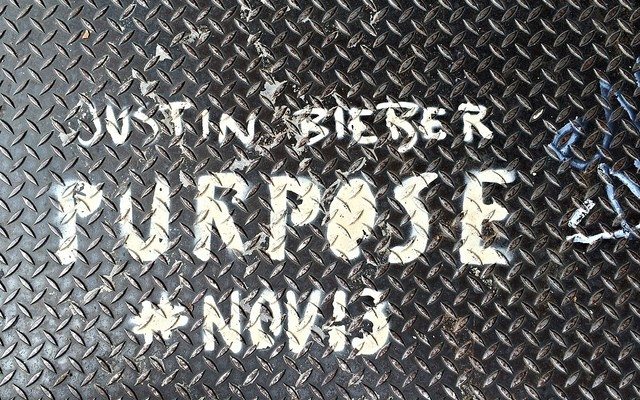 Image Courtesy of [Lynn Friedman via Flickr]
Image Courtesy of [Lynn Friedman via Flickr]
News
San Francisco Prosecutor Goes After Justin Bieber’s Illegal Graffiti
It’s been over a month since Justin Bieber’s latest album “Purpose” hit music shelves across the country, reminding women in their tweens, teens, and mom jeans just how much we all love the “Biebs.” But if anyone isn’t happy with the megastar after introducing chart topping ear worms like “Sorry” and “What Do You Mean,” it’s the San Francisco residents who are pissed about their Bieber-painted streets.
As part of a guerrilla marketing campaign promoting the album, advertisers spray painted Bay Area sidewalks with graffiti promoting the November 13 release. But after multiple rainstorms the paint still hasn’t washed away, prompting city officials to go after the pop star and his record label.
SF City officials documenting the @justinbieber related “tagging” on San Francisco sidewalks pic.twitter.com/4KBJAKyEXr
— Damian Trujillo (@newsdamian) December 28, 2015
San Francisco’s city attorney Dennis Herrera sent a letter to executives from Def Jam Records and Universal Music Group Monday, vowing to “aggressively pursue all available penalties and costs from those responsible for lawless marketing tactics that intend to financially benefit Mr. Bieber and your respective companies.”
Matt Dorsey, a spokesperson for Herrera, isn’t sure exactly how much the clean up will cost, but noted to NBC Bay Area that the letter states the label could be liable for civil penalties of up to $2,500 for each violation. San Francisco currently spends approximately $20 million annually of tax payers’ money to remove graffiti from its streets.
For an interactive map of locations and photos of Bieber graffiti click here
But city officials are concerned with more than just the cost of removing the ads, they’re worried about public safety as well. Herrera noted in the letter that the graffiti poses a possible threat to pedestrians, by “intentionally creating visual distractions on busy rights of ways.” He also fears that the marketing campaign “irresponsibly tells our youth that likeminded lawlessness and contempt for public property are condoned and encouraged.”
Some people believe the companies may have planned for the negative exposure in advance, even setting aside money in case of possible legal fees associated with the illegal promotion tactic. In some cases the fines from the guerrilla marketing seem worth it for companies in exchange for the huge publicity that came with it.
So far Bieber, his record label, and distributor haven’t responded to the letter, but Dorsey is hoping they “make things right.” But is it too late now to say sorry?








Comments